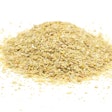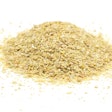
When was the last time a brand new animal feed additive was launched on the market? You will be hard-pressed to remember because feed additive manufacturers have stopped searching for new compounds a long time ago. They just recycle their existing technology, hoping to improve its efficiency, expand its application or find new variations of the same theme. Think about yeast, for example. We have yeast cell walls, yeast cell contents, organic mineral yeast, yeast and fermentation solids — it is always the same technology: yeast. If you need another example, think about zinc oxide: organic zinc, porous-zinc oxide, zinc chloride, nano-zinc oxide — all zinc forms aiming to replace zinc oxide.
So, why have additives like lysozyme, lactoferrin, macrophages and antimicrobial peptides failed to reach our market when there is no doubt they can be as effective as any current commercial additive? Cost appears to be the correct answer, and this relates to the cost of registering a new additive that is not tied to an existing one — especially those with names that sound as if they were stolen from an episode of Game of Thrones, like macrophages. The scary part is that the more unknown the compound is, the more requirements it has for registration, including trials with animals regarding efficiency, safety, toxicity, etc. Macrophages are such an additive.
I have already discussed the issue of marketing fatigue when it comes to feed additives, and this might also contribute to the lack of totally new additives. But this relates more to a marked reduction in the use of all kinds of additives — or, put more bluntly, a focus in using only additives that really work.
So, what will it take for a brand new additive to show up? First, chance: someone discovers a really, really effective compound that can solve one of the big problems current additives struggle to contain. But more likely, some legislation will create another problem that will require an immediate solution. Then, if current additives fail to adapt, new compounds will have to come to the rescue. Hopefully politicians are not reading this blog as I would be loath to give them such ideas, not that they lack sufficient imagination of their own!
















